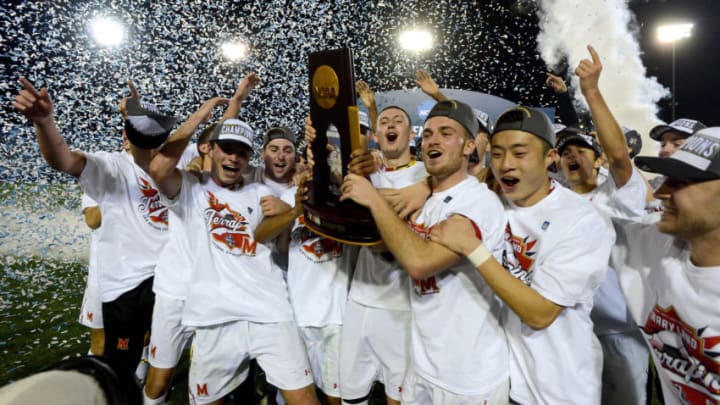In April, the NCAA will vote on expanding the college soccer season. The result will impact the relevancy of college soccer as a pathway to MLS.
College soccer is in trouble. The avenue is no longer the predominant way to make it to Major League Soccer, and the college game and SuperDraft are becoming less and less relevant. Most college players drafted don’t see a minute in MLS and end up playing in the lower tiers or not at all. In 2019, only 28 of 76 drafted players made an MLS roster, and only three played in 20 or more games.
But University of Maryland Soccer’s Head Coach, Sasho Cirovski, has been trying to change this. For almost ten years, he has been working to expand the college season.
Currently, college soccer students play a short season. Games begin at the end of August and finish by late October or early November, with the National Championship game taking place in December.
More from MLS Multiplex
- Javier Milei Elected in Argentina: Potential Impacts on MLS and Signings of Argentine Players
- Orlando City and New York City FC in the Battle for Matías Arezo; Grêmio Enters Negotiations! Who Will Come Out on Top?
- USA, Honduras, Panama, and Canada Close in on a Spot in the 2024 Copa America
- De Gea Turns Down Al-Nassr’s Lucrative Offer: Speculation Points to Possible Reunion with Messi at Inter Miami
- Messi’s Magnetic Impact in the United States
In a letter from multiple National Championship coaches, the fall season is compared to the Premier League Christmas season, in which a high number of games are played in a condensed period of time. The short college season is proven to an increase in soft tissue injuries, a greater risk of fatigue, and an adverse impact on academics. In other words, the college season can be harmful to players who dream of taking the next step professionally.
But in April, pending the impact of COVID-19, after years of hard work, the NCAA will finally vote on the 21st Century Model. This proposal would reduce college soccer games to 23 games and expand the season over the two semesters of college with a break from Thanksgiving to mid-February. This would reduce the number of mid-week games, decreasing the chance of injury among college athletes.
According to a 2016 article from the Diamondback, another problem of the stacked schedule is that players fall behind in classes because of the condensed season, missing the same classes multiple times. Extending the season would balance out the absences, allowing players to catch up. Hence, players who want to continue their education would have more time to do so. Plus, it would reduce stress on these players, which would support their mental health.
The 2016 article also illuminated that college players and coaches have a game-to-game mentality and lack focus on long-term development. This revelation enhances college soccer’s lack of relevancy. Players are not developing properly. As a result, when they arrive at MLS teams, they have not been taught how to deal with professional soccer. They are not ready.
And according to an ESPN article, the NCAA needs to change for college soccer to be deemed relevant again. Cirovski believes this is why kids are taking other routes for development:
"“These kids aren’t bypassing college because of excessive money but because of the developmental opportunities. They feel like they’re being left behind with the unbalanced schedule.”"
Therefore, talent in the college game has decreased. Choosing to play in the NCAA can be risky due to lack of development and plenty of the best young players are choosing to fulfil their soccer dreams elsewhere. Fortunately, Cirovski and other head coaches are hoping to change this and bring college soccer into the 21st century, rather than the system that was formed in 1959.
Not every coach agrees, however. ESPN said University of Notre Dame Coach Chad Riley believes not having games in the spring allows the development for younger players. But what Riley forgets is the new model allows more time between games and young players can use that time to train, work on their respective games, and improve more generally.
Ultimately, academies and clubs around the world do not follow the college method. That is why 90% of head coaches support the proposal, as seen in the letter from multiple head coaches. But to the NCAA, the rest of the world does not matter, and those who vote will be clouded by the ways of other sports in the NCAA.
But soccer is not football, baseball, or basketball. It is another animal, and to remain relevant in the modern game, the NCAA must vote to extend the season.
